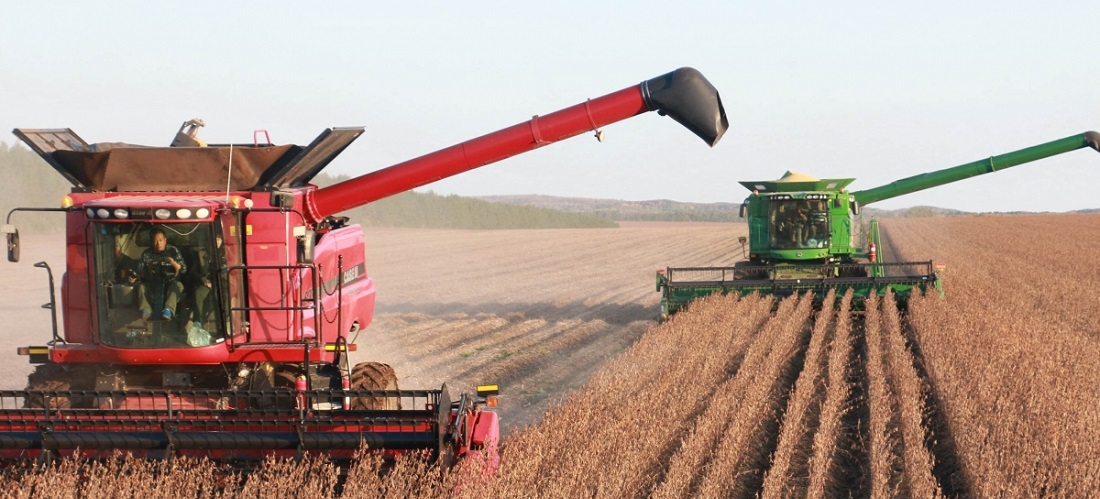
Sustainable production criteria could boost sales to China
Feb, 22, 2024 Posted by Gabriel MalheirosWeek 202408
A study by the Climate Bonds Initiative (CBI) shows that establishing criteria for sustainable rural production in Brazil could further facilitate and expand trade with the sector’s main client, China.
The study indicates that the two countries could collaborate on a “harmonized taxonomy” for green agriculture in the future—in other words, the possibility of comparing and aligning the criteria for granting green finance between the two countries. With this, Brazil and China would be able to define with clear rules what is “green” within the sector, to make it easier for the interested public to understand and to facilitate financial flows.
Sustainable taxonomy is a classification system based on a set of criteria to delineate economic activities and assets that align with significant environmental and sustainability objectives. In “harmonized” markets, the measure can speed up the flow of capital across borders. Otherwise, there could be confusion about the rules on the part of companies and investors.
According to the CBI, this would boost green financial flows between the Brazilian and Chinese markets and create a common understanding of the benefits of buying from sustainable chains.
The report highlights that China and Brazil are already trying to harmonize these criteria internally, recognize the common challenges of land degradation, pollution, and climate change, and share political priorities. The Sino-Brazilian focus should be on decarbonizing land use, carbon capture by forests and agriculture, production traceability and biodiversity conservation.
The CBI says that the development of “climate change adaptive and climate friendly” infrastructure must be incorporated as a critical basis for efficient and high-quality agricultural production.
The study makes seven practical recommendations for the green transition and bilateral sustainable development. The first is to establish criteria for sustainable agriculture based on the creation of a collaborative framework between the central banks of China and Brazil for production financing practices, investments, and activities. The CBI also highlights the need to prioritize key areas and intensify innovation, research, and technology development.
The organization advocates establishing bilateral trade agreements that support investment and financing for sustainable agriculture and points to the opportunity of directing capital flows, such as a special fund between Brazil and China to support the sector and prioritize “green” loans.
The report also suggests reducing transaction costs, with innovative approaches to create a financial environment more conducive to contributions to the sustainability of rural production, and the creation of partnership platforms with financial institutions to encourage collaboration in identifying projects.
“Brazil’s commitment to sustainable agriculture is evident in the most diverse initiatives aimed at increasing the efficiency of the productive sectors of agribusiness,” said Sheila Alves, manager of the CBI’s Agriculture Program in Latin America and the Caribbean, in a statement. “Together with China, we are treading a path towards a greener and more sustainable agricultural scenario.”
Shaoxin Li, head of CBI’s China Agricultural Transition, said that the Asian country is at the forefront of climate finance and has used this to support agriculture in tackling climate change and promoting biodiversity.
Source: Valor International; translation by Marina Della Valle.
Click here to be redirected to the original news article: https://valorinternational.globo.com/environment/news/2024/02/20/sustainable-production-criteria-could-boost-sales-to-china.ghtml
-
Ports and Terminals
Aug, 18, 2022
0
Cargo throughput in Santos rises 5.6%, while overall Brazilian ports drop 3.3%
-
Ports and Terminals
Jan, 27, 2025
0
São Francisco do Sul and Imbituba Set Cargo Volume Records in 2024
-
DW 2020 EN
Mar, 30, 2020
0
DATAMARWEEK 31 MARCH 2020
-
Ports and Terminals
Dec, 01, 2023
0
Oil platform P32 to arrive at Rio Grande Complex by early December



